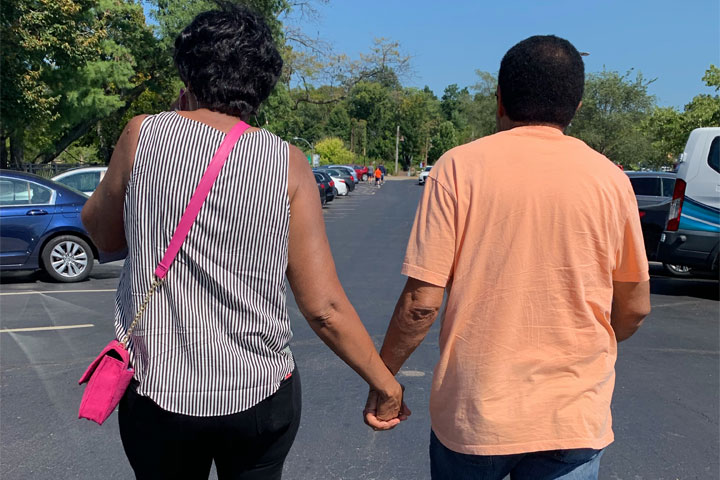Honoring Freedom, Resilience, and the Continued Fight for Equality
As NDBT pauses business along with many other great companies throughout the United States to observe, honor, and celebrate Juneteenth, we’d like to share some thoughts from one of our own employees, Haley Ellison, whose experiences are just a few of the reasons we should be doing more than just “taking a day off.”
Introduction
As Juneteenth approaches, my thoughts turn to the profound meaning of freedom and the enduring strength of my family in the face of adversity. It is a time to reflect on the legacy they left behind and the ongoing battle against racial injustice, as well as the crucial need for education in Black history. Juneteenth holds a deep significance as a righteous pursuit of true freedom for all and a steadfast commitment to remember the past while envisioning a better future.
Escaping Shackles and Building a Better Future
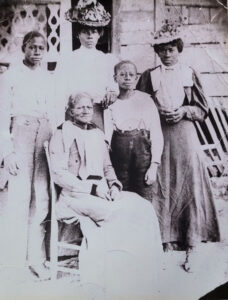
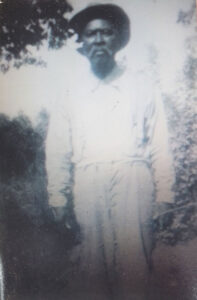
In the 1920s, my great grandparents, Rev. George and Fannie Mae Ellison, and their seven children labored as sharecroppers on an Alabama plantation, living in a meager shack. Although no longer legally enslaved like their parents, they were still treated as such. They were only given scraps and leftovers to eat, and they were paid little to nothing. They were deprived and mistreated. Driven by their determination to provide a brighter future for their children, my great grandparents made the brave decision to escape in the wake of the night and ended up making a home in Morocco, Missouri, which is a small community on the outskirts of Poplar Bluff. There, my grandfather, Herman, defied the odds and pursued an education with his lovely wife, Beatrice, supporting him every step of the way.
Courageous Journey for Education and Success
My great grandparents were determined to provide a brighter future for their children. Despite knowing they would have little, my great grandfather explained to his children that he left so they could receive an education. My grandfather, Herman, whom we affectionately call “Da”, was about 15 years old when they relocated to Missouri. He graduated high school, an achievement that surpassed the minimum requirement of an eighth-grade education to become a school teacher.
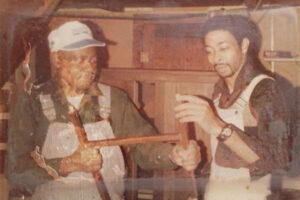
Da embraced his calling and became an elementary school teacher, while also attending classes at Lincoln University in Jefferson City. After four years as a teacher, he transitioned to the trade of furniture refinishing and repair in the 1960s. Passing down his skills to my father, Larry, they jointly established Ellison’s Furniture and Refinishing.
Overcoming Inequality and Discrimination
Their path to success was far from smooth. Along the way, my grandfather and father faced numerous challenges. Prior to starting their own business, my father worked two jobs to support his family, enduring over 30 years as the only Black employee. He worked 10 years before he could earn two weeks of vacation time. He was overworked, underpaid, and treated unequally compared to his white counterparts.
One incident that vividly sticks with me is when he encountered racial discrimination while delivering produce as a truck driver in our hometown. Upon finishing his delivery, he decided to have lunch at the same restaurant he delivered to only to be met with the offensive remark, “We don’t serve your kind here.” The year was 1966.
Carrying the Torch of Progress
Ultimately, our family business thrived, allowing my father to be self-employed and break free from the chains of discriminatory employment practices. To this day, he continues to excel in his craft with my beautiful mother, Jane, by his side. They’ve been married 54 years and counting and have 9 children together.

I was born in a place where the schools weren’t integrated until the late 1950s, where Black people didn’t get the same opportunities as whites, where I found myself as the sole Black individual in my classrooms and workplace. I experienced the challenges and triumphs of being the first and only Black manager at a bank in Poplar Bluff in 2019. Reflecting on this achievement, my father remarked that my grandfather would have been immensely proud, as such achievements were inconceivable during his time. My grandfather belonged to a time when a Black bank manager was unimaginable. Such milestones were unheard of in those days. Reminiscing on my grandfather’s legacy, I recognize the profound change that has taken place since his time.
Commemorating Freedom and Pursuing Equality
Juneteenth, also known as Freedom Day, holds tremendous significance in commemorating the emancipation of enslaved Black Americans. While President Lincoln’s Emancipation Proclamation marked the beginning of freedom in 1863, it wasn’t until June 19, 1865, that the last enslaved people were set free in Galveston, Texas by General Gordon Granger, acting on the president’s orders. Nevertheless, it’s crucial to acknowledge that despite legal freedom, Black Americans faced ongoing racial injustice, discrimination, and conditions reminiscent of slavery, including child labor, poor working conditions, Jim Crow laws, and civil rights suppression. The term “free-ish” captures the complex reality of being legally free yet subject to racial injustice and discrimination.
On June 17, 2021, President Biden signed the legislation recognizing Juneteenth as a federal holiday, an important milestone in acknowledging and commemorating the significance of this day. The tireless efforts of activists like Opal Lee, affectionately known as the “Grandmother of Juneteenth”, played a pivotal role in the nationwide recognition of this important historical event.
Celebrations and Reflections
Juneteenth celebrations often involve gathering with friends and family by barbecuing and eating “red” foods, such as strawberry soda, punch, hibiscus tea, red velvet cake, red beans and rice, hot sauce, and fruits like strawberries and watermelon. The color red is symbolic because it represents the blood shed during slavery and also represents the Yoruba and Kongo cultures that were enslaved and brought to Texas. African traditions persisted through these culinary practices, representing sacrifice, struggle, and the embodiment of power.

Haley Ellison
Assistant Call Center Manager
Bank Officer
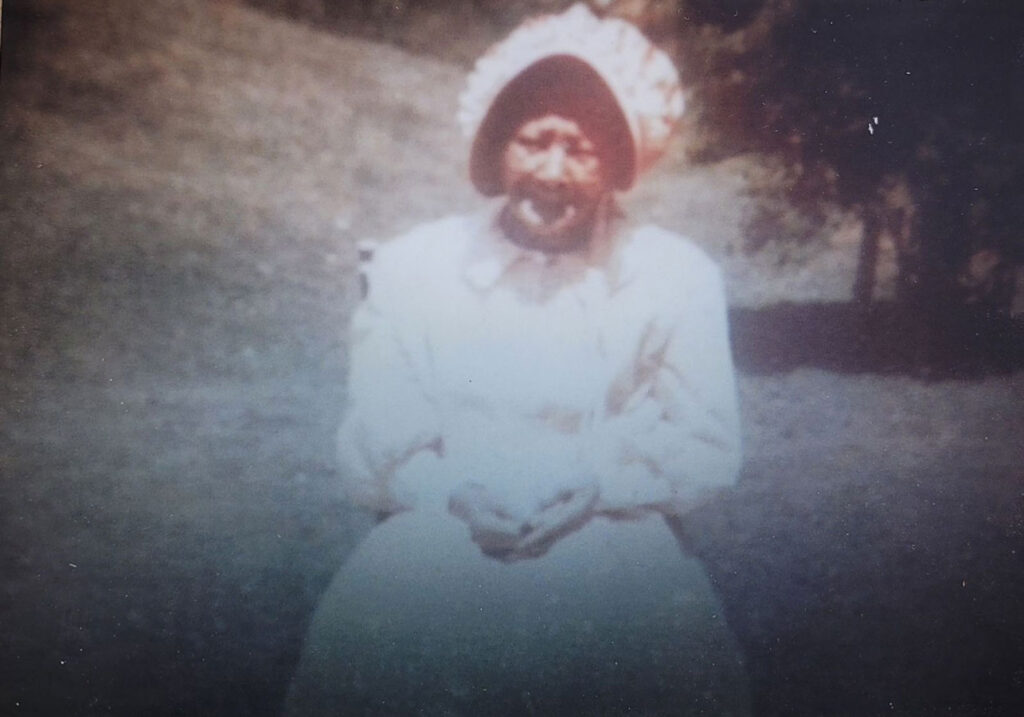
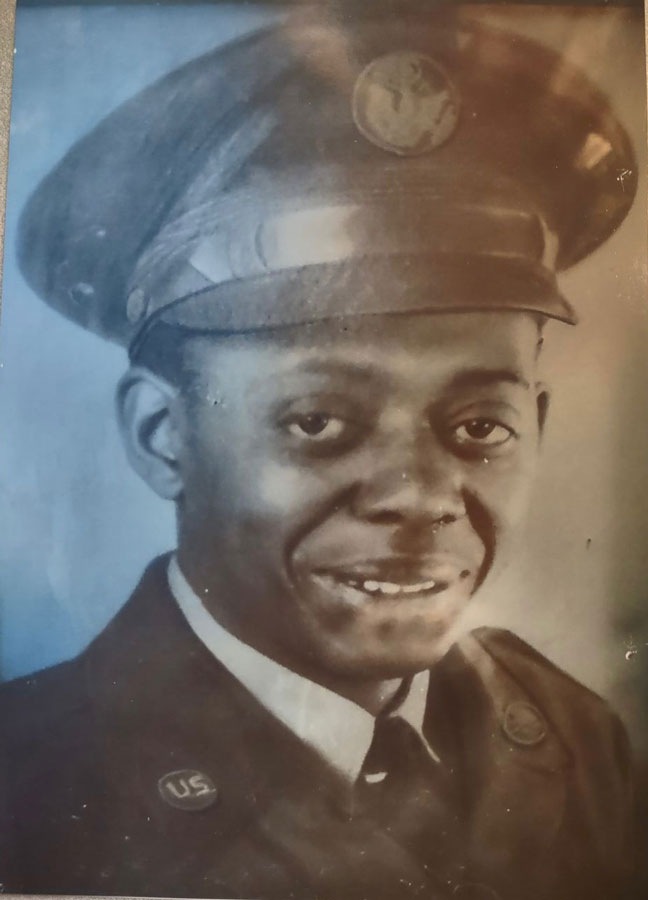

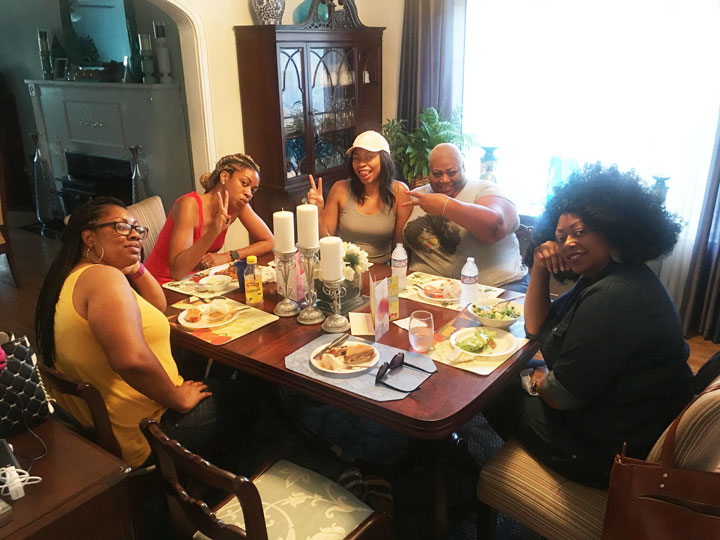
For me, Juneteenth represents a celebration of free will and a tribute to the courageous choices made by my family and ancestors. Through their sacrifices, I have been afforded a better life. Even when the odds were stacked against them, they showed resilience. Only by the grace of God did they overcome their struggles. And that’s something that remains in my blood. Their resilience in the face of adversity and their unwavering determination inspires me to be a catalyst for change. It is through their struggles that I understand the importance of progress and the continuous fight against racism and inequality.
A Call for Freedom, Equality, and Learning
On this Juneteenth, I hope we all will gain a deeper understanding of what it means to truly be free. To live in a world where you don’t have to fight for basic human rights, equality is upheld, you’re not met with repercussions for educating yourself, and there’s no systematic racism. Juneteenth shows how far we’ve come but it also reminds us that our work is not done. Juneteenth serves as a reminder of our collective responsibility to fight racial injustice and inequality.
 As Juneteenth gains broader recognition, it is my hope that people will begin to educate themselves more on Black history and our struggles of the past and present. This will foster a more inclusive future for all of us. It is through this increased awareness that we can make it a pivotal moment for positive change.
As Juneteenth gains broader recognition, it is my hope that people will begin to educate themselves more on Black history and our struggles of the past and present. This will foster a more inclusive future for all of us. It is through this increased awareness that we can make it a pivotal moment for positive change.
“Education is the most powerful weapon which you can use to change the world.”
-Nelson Mandela

